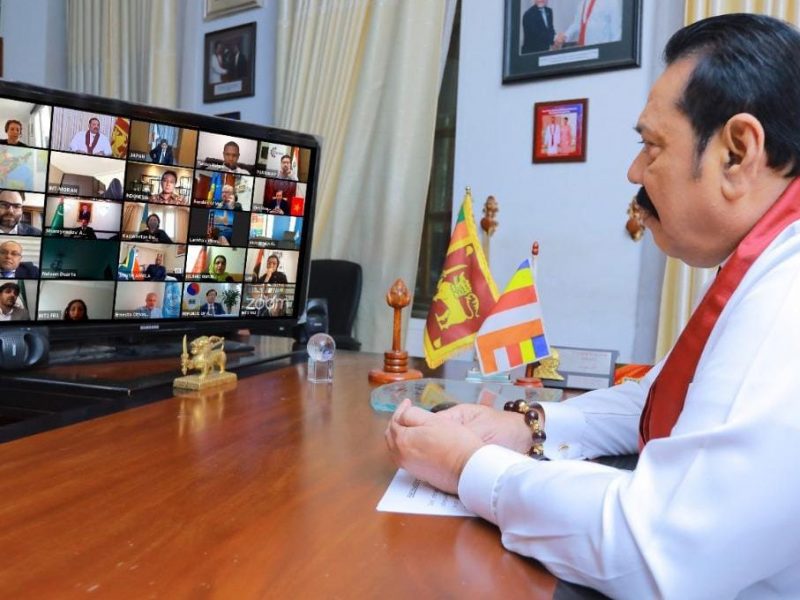(COLOMBO, LANKAPUVATH) – Prime Minister Mahinda Rajapaksa briefed UNESCO’s Cultural Ministers on the steps taken by Sri Lanka to protect the cultural sector in the face of the ongoing global pandemic.
The main objective of this discussion was to prioritise a strategy to obtain regional, national, and international level of strategic support to mitigate the impact of COVID-19 on Sri Lanka’s cultural sector, the Prime Minister’s Office said.
Prime Minister, Mahinda Rajapaksa remotely joined the discussion to share about the measures and mechanisms that will be given priority to support recovery and resilience in the culture sector of Sri Lanka.
As an extension of the Forum of Ministers of Culture organized by UNESCO on November 19, 2019, the Organization invited the Ministers of Culture to share, through a virtual dialogue, their remarks on the impact of the health crisis on the cultural sector, as well as on the responses being initiated within their respective policies frameworks.
The health crisis due to the COVID-19 pandemic may profoundly affect the cultural sector at regional, national and local levels over the long term.
UNESCO said that the mobility restrictions or containment measures taken by many countries to stem the pandemic drastically curb access to culture and weaken the cultural ecosystem as a whole.
The closure of heritage sites and related cultural infrastructure, the cancellation or postponement of events, and the interruption of cultural production will have significant economic and social repercussions for the cultural and creative industries.
The impact of the crisis will further weaken the professional, social and economic conditions of artists and cultural professionals, in particular individual entrepreneurs and small and medium-sized enterprises who often do not have the economic base necessary to respond to a crisis situation of this magnitude, UNESCO said.
This is particularly the case in the fields of crafts, music, film, performing arts, and even gastronomy.
In many parts of the world, the unequal access to technology exacerbates the dynamics of exclusion of certain populations.
Thus, this period of crisis carries the risk of deepening inequalities in access to culture and the diversity of cultural expressions in the world.
The crisis is also likely to reduce cultural diversity and exacerbate the trend towards the concentration and standardization within the cultural sector.




